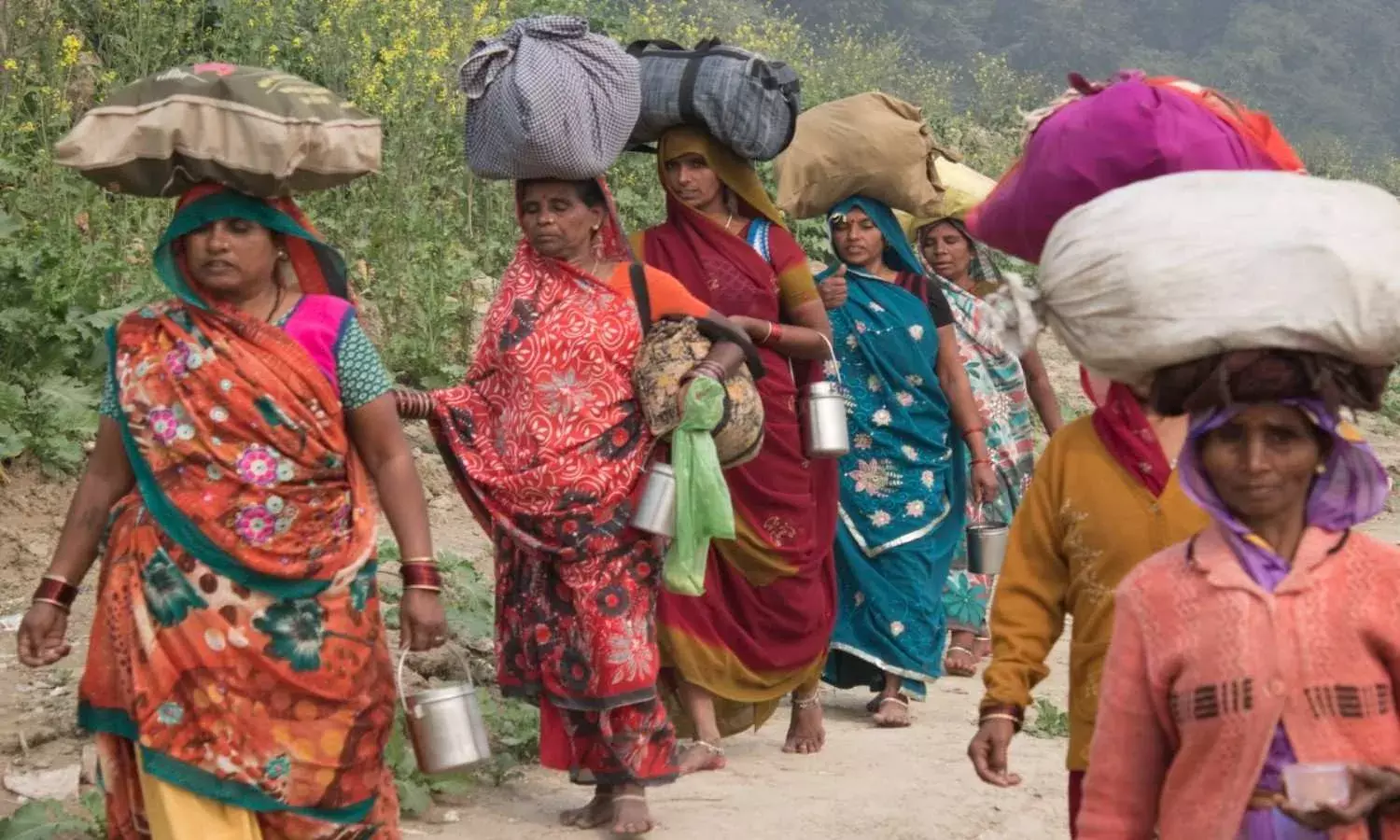DataViz: How Much Time Do Indian Women Spend On Self-Care?
Married working Indian women spend 82 minutes a day less on themselves than married working men, our analysis of time-use data shows

Indian woman carrying goods on head in Varanasi, India. Image Credit: swissmediavision
New Delhi: Last month, Infosys chairman N.R. Narayana Murthy insisted that Indian youngsters must work a 70-hour week. “I used to be in the office at 6.20 a.m. and leave office at 8.30 p.m. and worked six days a week…I know every nation that became prosperous did so through hard work,” he added. That’s the only way to escape the ‘cycle of poverty’, he said.
Most Indian working women work a 70-hour week anyway. Indian women’s unpaid work plays a crucial role in sustaining economic activity, equivalent to 3.1% of the gross domestic product (GDP), according to this 2018 report by the International Labour Organization. Unpaid care work entails a “systemic transfer of hidden subsidies” to the economy, in turn imposing a “systemic time tax on women”, a 2018 Oxfam report says. Comparing unpaid work across countries, the report found that Indian women do the most unpaid care and domestic work of any country globally, except Kazakhstan--a country with 94% lower GDP than India.
On average, Indian women spend over 44 hours a week on unpaid domestic work and caregiving activities, our analysis of time-use data shows. In comparison, men spend just over five hours a week on these activities. Add to this a 40-hour work-week, and Indian women engaged in paid work already work for about 85 hours a week.
But, what about self-care? We set out to answer this using time-use data.
We extracted and analysed data from the Time Use Survey of 2019. The dataset has 226,644 men and 218,526 women working full-time. Restricting the analysis to married men and women, we studied the time-use data for 130,289 men and 134,765 women.
For this analysis, self-care includes sleep, eating and drinking, personal hygiene and care, and receiving care from others such as visiting a clinic, salon or a therapist. We also include leisure, which involves attending events, participating in hobbies and sports, and mass media use such as reading, watching TV etc., as well as social and spiritual care which involves hanging out with friends and private prayer.
We have found that married Indian working women spend 45 minutes a day less than married working men in sleeping, eating and drinking, personal hygiene and receiving care from others. If we include leisure and time spent on prayer and socialising with friends and neighbours, then women spend at least 82 minutes a day less than married working men on self-care.
Lower allocation to leisure and self-care leads to an inability to reproduce oneself as a productive worker. Moreover, it impacts the ability to build community and results in isolation.
IndiaSpend has reported how women’s self-care is not prioritised. For instance, the widely prevalent practice where men eat first, the children next and women last is making women hungrier and sicklier, sparking a cascade of slow development, eventually implicated in holding back national economic progress, we reported in July 2017.
Further, almost 80% of women need to seek permission from a family member to visit a health centre, according to the 2012 Indian Human Development Survey, conducted by the University of Maryland and the National Council of Applied Economic Research, as IndiaSpend reported in 2016.
Across states, Arunachal Pradesh had the highest self-care gap (151 minutes), followed by Manipur, Chhattisgarh and Mizoram. Haryana had the lowest (49 minutes).
We welcome feedback. Please write to respond@indiaspend.org. We reserve the right to edit responses for language and grammar.


